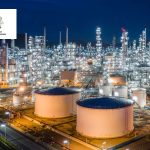Business Process Automation
The Department of Petroleum Resources (DPR) in Nigeria establishes automated platforms for Oil & Gas Regulatory services
Wragby formed a key partnership with the Department of Petroleum Resources (DPR) to align technological advancements with regulatory processes, fostering growth in the digital and dynamic oil and gas sector. The DPR ensures adherence to petroleum laws and guidelines with its Upstream Monitoring and Regulation (UMR) division managing the regulation, review, and approval of Rig and Vessel & Drilling certificates.
The Business Challenge
The Upstream Monitoring and Regulation (UMR) division of the Department of Petroleum Resources (DPR) oversees the regulation, review, and approval of Rig and Vessel & Drilling certificates. The legacy process for regulating, reviewing, and approving these certificates is loaded with challenges. The process was manual, end to end, requiring human and paper transactions and across the entire approval process.
The manual process involved operators applying via written documentation, which is submitted to the DPR licensing offices. The documents are later despatched to the DPR’s headquarters for verification and due diligence. Physical facilities inspection is subsequently carried out before the final licenses are issued. This method took much time for approvals, with paper loss, human error, and forgetfulness delaying the delivery. The delays and oversights cost huge loss in revenue due to delays in manual awards and sign-offs alone.
To optimize these operations, DPR needs to transit the approval of Rig and Vessels, as well as Drilling, from manual to automated ‘Rigs & Vessels Work Process Application’ and ‘Drilling Completion/Re-entry Work Process Application.’
Why Wragby
Considering the critical nature of this platform to the national economy, leading technology OEMs and partners competed to win this bid. Wragby, as a Microsoft Gold Partner and a Strategic technology Partner with DPR, in partnership with Microsoft, presented a differentiated value proposition of a bespoke solution built on Microsoft Azure to meet this objective for the UMR Division of DPR. After a series of workshops, prototype demonstrations, and an explanation of our proposed Azure DevOps Service and a thorough review by the DPR team, Wragby won the bid to deploy the platform.
Our software engineering team used Azure DevOps Services for the Planning, Development, Automated Build, Testing, Deployment, and Monitoring of the solution, in both Dev. and Production environments on Azure App Service. Using Open Source technologies like .Net Core with Azure DevOps Services and Azure MSSQL DB, the team was able to deliver a secured world-class software solution.
Azure DevOps Services also allowed us to quickly deliver the requested portal to the client in record time (twelve weeks), ensuring proper value delivery to the industry. With tight integration across Continuous Integration and Continuous Deployment (CI/CD) pipeline, work tracking, and source code repository, we were able to speed up the release cadence of each part of the solution.
The Deployment Process & Strategy
The solution ideation process started with our Business Analyst carefully working with the solution owner and the core stakeholders at the Department of Petroleum Resources. This initial engagement was to understand the primary objective of implementing the solution captured in the Business Requirement Document (BRD). With the BRD, we developed and presented a solution prototype to the stakeholders for review and approval. Immediately after approval, the prototype was carefully crafted into the solution features, categorized based on priority. The features then formed the basis of our sprints. Each sprint delivered the core features of the proposed system in progression after which a sprint review was held with solution stakeholders to determine if it meets the client’s objective of developing the solution. By the end of the third sprint, a Minimum Viable Product (MVP) was ready for the client to evaluate. This solution was delivered in 6 sprints.
Azure DevOps Services also allows an integrated, collaborative environment that supports Git, continuous integration, and Agile tools for planning and tracking the work done. Thus, continuous improvement is guaranteed for the platform. Hosted on Azure, the portal is assured of continuous availability and scalability, eliminating downtime and ensuring prompt issuing of operating certificates.
The Result
The Solution improved the process of regulating, reviewing, and approving operating certificates at DPR, boasting of the following features: Portal Registration, Operator Profile Registration, Database for all registered Operators on the Portal, Intelligent Reporting, Role-based Access to ensure Administrative rights is assigned to the UMR Exchange Unit to view activities on the portal, Analytics and Reporting on the Portal.
It also helps the DPR to stem the tide of revenue losses associated with the legacy process. The portal also enables the management all applications, proper reporting, and drilling for insights through analytics. This allows the crucial assessment of Investment Intensity within the Upstream sector.
The Future
The successful deployment of the automated platforms for oil and gas regulatory services by the Department of Petroleum Resources (DPR) in Nigeria serves as a remarkable milestone in the journey towards technological advancement and efficiency in the sector. By leveraging the power of Microsoft Azure Services, Wragby has laid a solid foundation for continuous improvement and scalability.
Looking ahead, the future holds promising prospects. The integration of advanced analytics, artificial intelligence, and machine learning into the platform will further optimize processes, providing deeper insights and enhancing decision-making capabilities. The commitment to continuous delivery and innovation ensures that the platform will evolve to meet emerging challenges and opportunities.
Moreover, the success of this initiative paves the way for similar technological transformations across other government sectors, fostering a culture of digital innovation and efficiency. As the oil and gas industry continues to navigate the complexities of the modern world, the DPR’s automated platform will remain a beacon of progress, driving growth and sustainability.
October 10, 2024


